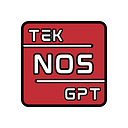Contratar Desarrolladores en IA generativa
Desarrolladores de IA generativa buscando su próxima misión. Desde juniors hasta seniors y todo lo demás, los encontrarás a todos aquí.
New!
New!
Filtros de desarrollador
Mostrando desarrolladores disponibles. Restablecer filtros
Regístrate ahora para ver más perfiles.
Accede a nuestro creciente grupo de desarrolladores en IA.











